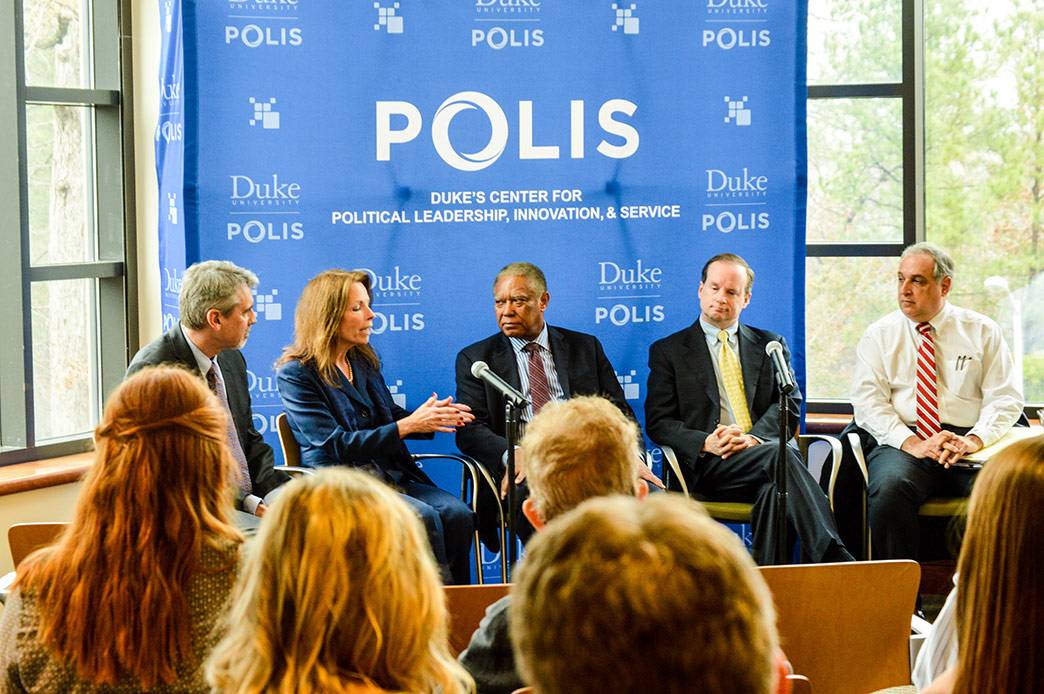Looking to Find a Way Toward Bipartisan Consensus in North Carolina Politics

In the aftermath of a divisive election, Duke Professor Fritz Mayer opened an inauguration day panel Friday asking, “How do we make North Carolina purple?”
The bipartisan panel of political leaders and activists expressed optimism that it would be possible for North Carolinians – and the country – work more across ideological spectrums.
Three hours after Donald Trump was sworn in as the United States’ 45th president, Mayer, director of Duke’s Center for Political Leadership, Innovation, and Service (POLIS), moderated a roundtable discussion including NC Senators Tamara Barringer and Dan Blue, Pope Foundation President John Hood, and Rick Glazier, executive director of North Carolina Justice Center.
Blue pointed out that all four panelists have learned how to work together on behalf of North Carolinians, and Barringer who just came out of a “very brutal and difficult campaign,” said she still plans to work with various stakeholders. It’s something, she said she learned in Girl Scouts, when girls with different perspectives were tasked to come together to solve a problem.
But when it’s time to govern, Barringer added, it’s hard to set aside the effects of a tough campaign.
Hood said that while political debate is “nastier than it’s been at moments in the past,” it’s not the worst it’s ever been. The median Republican is more conservative than 20-30 years ago, and the median Democrat is more liberal than 20-30 years ago.
This growing chasm, combined with stronger party identification, has correlated with greater electoral success for Republicans, Hood said, adding that provides Republicans with few incentives to compromise.
It wasn’t always this way, panelists said. Glazier shared that when he joined the State Legislature in 2003, it was evenly divided among Republicans and Democrats. “Compromise and consensus was the way to get things done,” he said.
But with Republican supermajorities in both houses, there’s no balance to the system. “We now have a 24-7, 365 [days a year] campaign,” Glazier said. “Part of our job is to create neutral spaces for meaningful dialogue. … Civility breeds civility, and incivility breeds incivility.”
Panelists also discuss the role gerrymandering played in reducing the number of competitive seats. Hood said he views redistricting reform as an insurance policy, guaranteeing that whichever party reverts to the minority will be more empowered than Democrats are currently.
But Blue said the effects of gerrymandering will linger. “I think gerrymandering is more pernicious than what appears on the surface.”
HB2 has also contributed to the partisanship in the state, with the panelists also divided about the bill. Barringer said privacy and safety were paramount concerns for HB2’s legislative supporters. “Any time you put forth landmark legislation,” she said, “you need to be prepared to deal with the consequences.” To move forward, she said she’s not interested in pointing fingers, but on “reclaiming the good brand of North Carolina while embracing privacy.”
To move forward, Glazier said, beyond a full repeal of HB2, the state should move forward in a way that promotes family values, civil rights and other elements that both sides can jointly get behind.